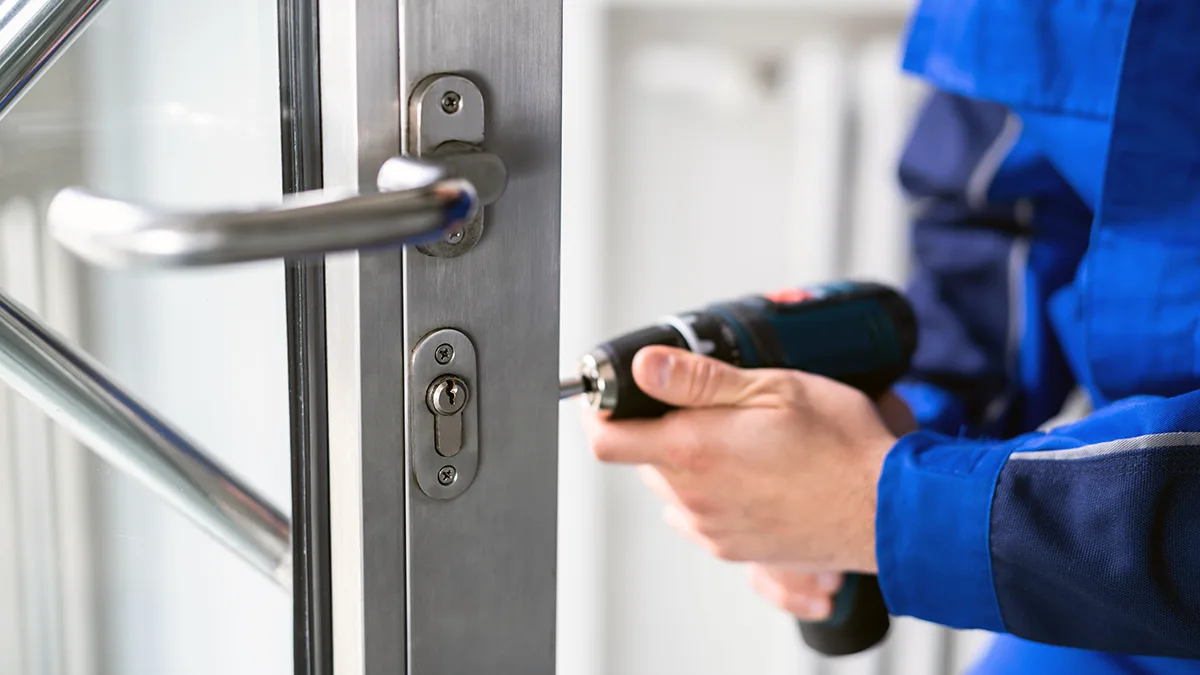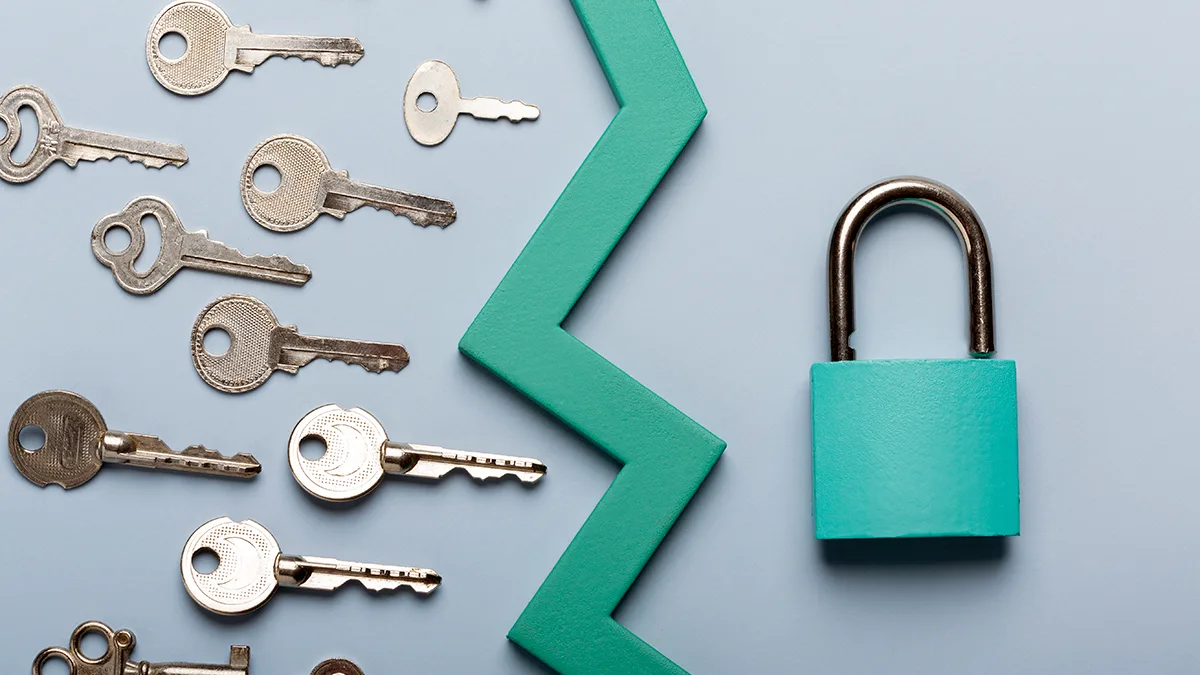The Evolution of Locks: From Keys to Keypads. The evolution of locks is a fascinating journey…
Changing Locks on a New Home
Changing locks on a new home, the security risks of old locks. When moving into a new home, one of the primary concerns should be the security implications of the existing locks.
The previous homeowners, along with their family, friends, or even maintenance workers, might still possess keys to the current locks. This situation creates a significant security risk as it opens up the possibility of unauthorized individuals gaining access to the property. Understanding these risks is essential for ensuring residential safety.
Changing Locks on a New Home
The uncertainty surrounding who might have a key to your new home generates a security loophole that could be exploited. Without changing the locks, you cannot be certain of the number of people who have had access to the keys over the years.
Even if the previous owner assures you that all keys have been handed over, there is no guarantee that they have accounted for every single copy or if any keys were duplicated without their knowledge.
Moreover, old locks may also be susceptible to various forms of tampering or advanced lock-picking techniques, which can further compromise the security of your new home.
Changing Locks on a New Home: Outdated locking mechanisms
With technological advancements, criminals have become more adept at bypassing outdated locking mechanisms, making it even more imperative to upgrade to newer, more secure options. This not only enhances physical security but also provides peace of mind, knowing that the chances of unauthorized entry are significantly reduced.
In addition to the potential for unauthorized access, old locks may have experienced wear and tear over time, compromising their effectiveness. Locks that are worn out or damaged are easier to break, which can make your home an easy target for intruders.
By changing the locks immediately upon moving in, you eliminate these vulnerabilities and ensure that your new home is a safe and secure environment for you and your family.
Ultimately, addressing the security risks associated with old locks is a critical step in maintaining the integrity and safety of your new home. By proactively changing the locks, you can mitigate potential threats and establish a secure foundation for your new living space.
Enhanced Home Security through Lock Replacement
Changing the locks in a new home is a proactive measure to fortify against potential security threats. This step is not merely reactionary, taken after a security breach, but rather an anticipatory action designed to prevent unauthorized access from the outset.
By replacing the locks, homeowners can ensure that only they and their trusted individuals have access to the property, thereby significantly enhancing residential safety.
When moving into a new home, the previous occupants, realtors, maintenance workers, and others may have had access to the keys. Without changing the locks, there is no certainty about who might still possess a copy.
This uncertainty poses a risk that can easily be mitigated with lock replacement. By installing new locks, homeowners gain control over who can enter their home, effectively eliminating the risk of uninvited intrusions. This measure not only secures the property but also contributes to a sense of peace and well-being.
Security and convenience
Moreover, lock technology has advanced significantly, offering a range of options for enhanced security. Homeowners can choose from traditional deadbolts, smart locks with digital codes, biometric systems, and more.
Each of these options provides varying levels of security and convenience, allowing homeowners to tailor their security measures to their specific needs.
Beyond the physical security that new locks provide, there is also a psychological benefit. Knowing that the home is secured with new locks instills a sense of peace and confidence.
This peace of mind is invaluable, as it allows homeowners to focus on other aspects of settling into their new environment without the lingering worry of potential security breaches.
In conclusion, changing locks upon moving into a new home is a crucial step in ensuring residential safety. It is a proactive approach that provides control over access, leverages modern security technology, and offers significant peace of mind.
By taking this simple yet effective measure, homeowners can rest assured that their new home is a safe and secure haven.
Upgrading to High-Security Locks
When moving into a new home, ensuring the security of the residence should be a top priority. The existing locks may be outdated, worn out, or of substandard quality, which could leave the home vulnerable to modern burglary techniques.
Changing the locks provides a crucial opportunity to upgrade to high-security locks that offer enhanced protection and peace of mind.
High-security locks are designed to be significantly more resistant to tampering than standard locks. They often feature advanced mechanisms such as anti-pick pins, which make it exceedingly difficult for intruders to manipulate the lock using common picking tools.
Additionally, high-security locks are often bump-resistant, preventing unauthorized access through bump key techniques, a method frequently employed by burglars.
Moreover, the materials used in high-security locks are typically more robust and durable. Reinforced materials such as hardened steel or brass increase the lock’s resistance to physical attacks, such as drilling or brute force.
This ensures that even determined intruders will find it challenging to breach the home’s defenses.
Upgrading to high-security locks also provides an opportunity to integrate modern security features that further bolster residential safety. For instance, some high-security locks come equipped with patented key control systems, which restrict unauthorized duplication of keys.
This ensures that only authorized individuals have access to the home, significantly reducing the risk of unauthorized entry.
In summary, changing the locks on a new home is not merely a precautionary measure but a proactive step towards ensuring robust security. Upgrading to high-security locks enhances the home’s defense mechanisms, making it more resilient against potential break-ins.
By investing in high-quality, advanced locking systems, homeowners can safeguard their property and enjoy greater peace of mind, knowing their residence is well-protected against the evolving tactics of burglars.
Peace of Mind and Long-Term Security
Changing locks in a new home goes beyond immediate security advantages; it lays a foundation for long-term peace of mind. When homeowners take the proactive step of replacing locks, they actively ensure that their living environment is protected from unauthorized access.
This act is not merely about altering the physical locks but also about creating a sense of security and control over one’s home. Knowing that only trusted individuals have access to your residence can significantly reduce anxiety and enhance overall well-being.
Investing in lock replacements upon moving in is a crucial measure to safeguard your investment and loved ones. It symbolizes a commitment to residential safety, reinforcing the idea that protecting one’s home is a priority.
This commitment should not be seen as a one-time action but rather as an ongoing responsibility. Periodically evaluating and updating home security measures, including checking and replacing locks, is an essential aspect of responsible property ownership.
By maintaining a routine of security assessments, homeowners can stay ahead of potential threats and ensure their home remains a safe haven.
A proactive approach to home maintenance, particularly in terms of security, can prevent future issues and provide continuous protection. This includes being mindful of advancements in lock technology and considering upgrades that could offer enhanced security features.
Regularly updating locks and other security systems can deter potential intruders and ensure that the home remains fortified against breaches.
In essence, this ongoing vigilance is a key component of creating a secure and safe living environment, offering long-term peace of mind to homeowners.
Ultimately, changing locks in a new home should be viewed as the first step in a series of proactive measures aimed at guaranteeing residential safety. It reflects a broader commitment to maintaining a secure household, which is indispensable for the safety and comfort of all occupants.
By embedding these practices into the routine of homeownership, individuals can confidently protect their homes, investments, and cherished ones.




Comments (0)